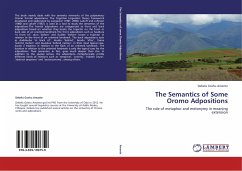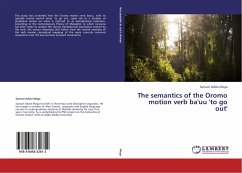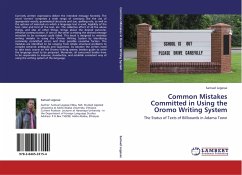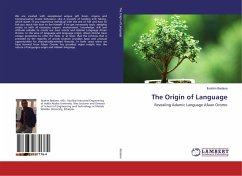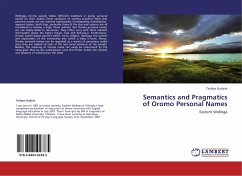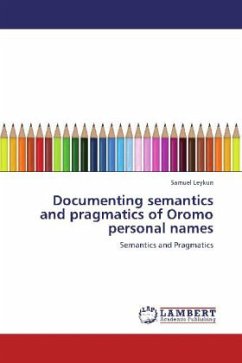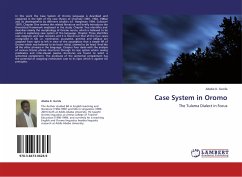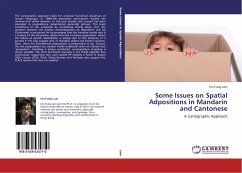This book mainly deals with the semantic networks of the polysemous Oromo frontal adpositions. The Cognitive Linguistics theory framework developed and elaborated by Langacker (1987, 2000), Lakoff and Johnson (1980) and Lakoff (1987), is used as a tool to study the semantics of the adpositions.The frontal adpositions are categorized as front and back adpositions based on whether they locate the trajector on the front or back side of an oriented landmark.The front adpositions such as fuuldura in front of , dura before and fuullee before locate a trajector in relation to the front of an oriented landmark. The back adpositions such as dudduuba in back of , duuba behind , booda after , faana behind_motion and duukkaa behind_motion , in their most typical case, locate a trajector in relation to the back of an oriented landmark. The location in relation to the oriented landmark is only the typical case for the adpositions. Their semantics, in fact, goes much deeper than this. In addition to the spatial senses, the adpositions metaphorically profile different kinds of relations such as temporal , priority , hidden cause , abstract sequence and socioeconomy , among others.
Bitte wählen Sie Ihr Anliegen aus.
Rechnungen
Retourenschein anfordern
Bestellstatus
Storno

